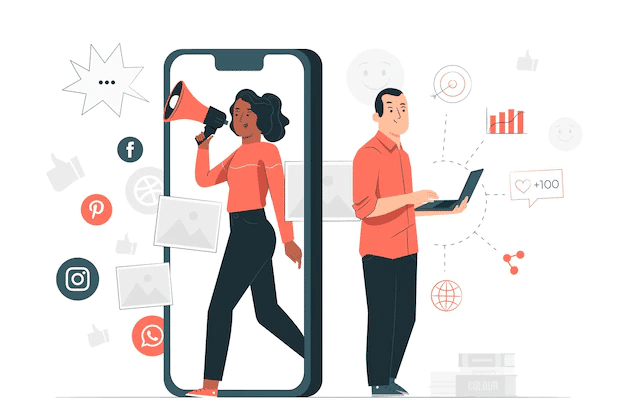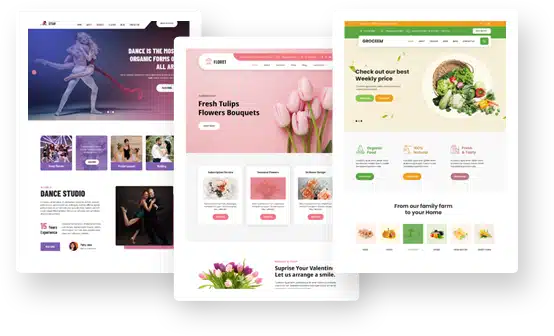Know How Identity Verification Has Evolved with Social Media Marketing

Social media marketing is building relationships with potential and current customers through various social media platforms. The foundation of social media marketing is based on sharing quality content, engaging with customers and followers, and listening to feedback.
Businesses must identify their goals, understand their target audience, and select the right social media platform. This is vital to implement a social media marketing strategy successfully. One of the most critical aspects of social media marketing is identity verification.
This process ensures that businesses connect with real people, not fake accounts. Social media platforms now offer various ways for users to verify their identities, making it much harder for scammers and spammers to operate. This blog will explore how identity verification has evolved with social media marketing and its benefits.
What Is Identity Verification
Identity verification is the process of confirming that someone is real. This can be done through various means, such as asking for identification documents or using biometric data. Identity verification has been used in marketing for many years, particularly in age verification.
In recent years, identity verification has begun to be used more frequently for other purposes, such as verifying someone’s identity before allowing them to make a purchase online. It helps to reduce fraud and protect businesses from chargebacks.
As the world becomes increasingly digitized, it is likely that identity verification will continue to play an essential role in marketing and other areas of business.
Different Methods of Identity Verification with Social Media Marketing
As social media marketing becomes increasingly popular, businesses are looking for more effective ways to verify the identities of their users. One standard method requires users to log in with their social media accounts. This allows businesses to confirm that the users are whom they say they are and to collect basic information such as age and usernames.
Another method is to use third-party identity verification services. These services allow businesses to verify users’ identities without requiring them to disclose any personal information.
The identity verification services can be a valuable tool for businesses that need to verify the identity of their customers or employees. Several third-party identity verification services are available, so choosing the right one for your business is vital. Make sure to consider the cost, the level of security provided, and the ease of use before deciding.
You can also use two-factor authentication, which requires users to confirm their identity using a second device such as a phone or email address. Another method is using a government-issued ID, which can be verified by matching the individual’s name and photo with an online database.
However, the most effective way to verify someone’s identity is to use a combination of methods. For example, you can require someone to verify their email address before they can log in to your site or app.
Or, you can ask them to confirm their identity by providing a phone number or credit card. By combining these methods, you can be sure you are dealing with a natural person and not a fake account.
By using one of these methods, businesses can be sure that their users are real and that they have the necessary permissions to access their accounts.
How Social Media has Changed the Way Businesses Conduct Identity Verification
Social media has revolutionized the way businesses interact with their customers. In the past, companies had to rely on paper-based methods of identity verification, which was both time-consuming and expensive. However, social media has made it possible to quickly and easily verify customers’ identities online.
For example, let’s say you’re trying to verify the identity of a new customer. In the past, you might have had to request copies of their ID documents and then schedule an in-person meeting to verify their identity.
But with social media, you can simply request that they send you a copy of their ID via email or messenger and then use facial recognition software to verify their identity. This process is not only much faster, but it’s also more convenient for both parties.
In addition, businesses can also use social media to track down customer information that may have been lost or stolen. As a result, social media has changed how companies conduct identity verification, making it faster and more efficient.

The Benefits of Using Identity Verification with Social Media Marketing
Using social media marketing for identity verification can provide many benefits. First, it allows businesses to quickly and easily verify customers’ identities in real-time. This helps to reduce the risk of fraudulent activities, such as identity theft or unauthorized access to accounts.
Social media marketing can also help build customer trust by establishing a personal connection. By confirming identities through social networks like Facebook, businesses can demonstrate that they are reliable and trustworthy providers of services.
Finally, leveraging customer data from social media profiles can give businesses valuable insights into potential new markets and customer segments that could be targeted for future growth. Ultimately, social media provides an efficient and cost-effective way for companies to authenticate customer identities and gain valuable insights about their customers.

However, it is essential to remember that social media marketing for identity verification requires the customer’s consent and should always be done securely. Businesses should comply with applicable data protection legislation and have adequate measures to protect customers’ personal information.
Additionally, businesses must use appropriate opt-out mechanisms so that customers can control their data and choose to withdraw permission for companies to access their information at any time. With careful consideration of these factors, businesses can take advantage of the benefits of using identity verification.
Challenges with Identity Verification in Social Media Marketing
Of course, there are some downsides to using social media marketing for identity verification. For one, ensuring you’re using a secure platform to exchange sensitive information is important. Additionally, you’ll need to be sure that you’re using a reliable facial recognition software program, as some fake programs can easily be fooled.
By staying up-to-date with the latest trends and using multiple sources of information, companies can overcome these challenges and use social media marketing to verify identities.
Final Thoughts
As identity verification evolves, social media marketing will become safer and more trustworthy. Many platforms require users to verify their phone numbers or email addresses before setting up an account. This means that it’s much harder for someone to create a fake account using someone else’s information.
Additionally, many platforms now offer verified accounts for businesses and public figures. This lets users know that they’re interacting with a real person or organization, and it helps build trust between the user and the brand.

